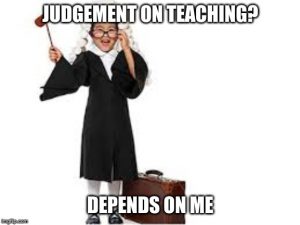May 7, 2019, by leytb12
Could robots replace your lecturers? What it means to teach!
Thursday morning, coffee in hand, I attended a philosophy lecture given by Andrew Fisher, here at the Uni of Nottingham, on teaching and learning.
Tired eyes and sore heads from the night before filled the room, also hoping their coffee would help spring them into life…ready to learn!
But what is it, exactly, to learn? Carry on reading for the answer, and an insight into lectures here at Nottingham!

So how do we know when teaching has occurred?
Traditionally, teaching is defined as requiring two things:
Intentionalism: The person doing the teaching, must have the intention to bring about the learning of their pupils.
Internalism: Learning must have taken place for teaching to have occurred.

But, what happens if a teacher accidentally teaches someone something? For example, an actor thinking he was on a movie set ‘teaching’ a class, but instead had turned up to an actual school…leading an actual lesson?
Or, if a swimming instructor tries their best to teach a child to swim, but they just can’t do it, has teaching not occurred here?

Enter Fisher and Tallant’s argument: Teaching has occurred if the person being ‘taught’, under ideal circumstances, judges that they are being taught.
Quickly, ideal circumstances would mean things like: understanding the language used, not on drugs, the teacher wants to teach, no coercion and so on!

Teaching is, therefore, judgment-dependent.
It’s not concerned with what makes a good teacher, just that they anyone can be teaching even if what they are teaching is factually wrong, provided the learner thinks they’re being taught!
This means that anyone can teach…even a robot! My judgment-dependent decision is that I want C-3PO for my next philosophy lecture, no offense Andrew!

If you’ve enjoyed reading this, then you’ll love the wide range of philosophy available come September!
No comments yet, fill out a comment to be the first

Leave a Reply